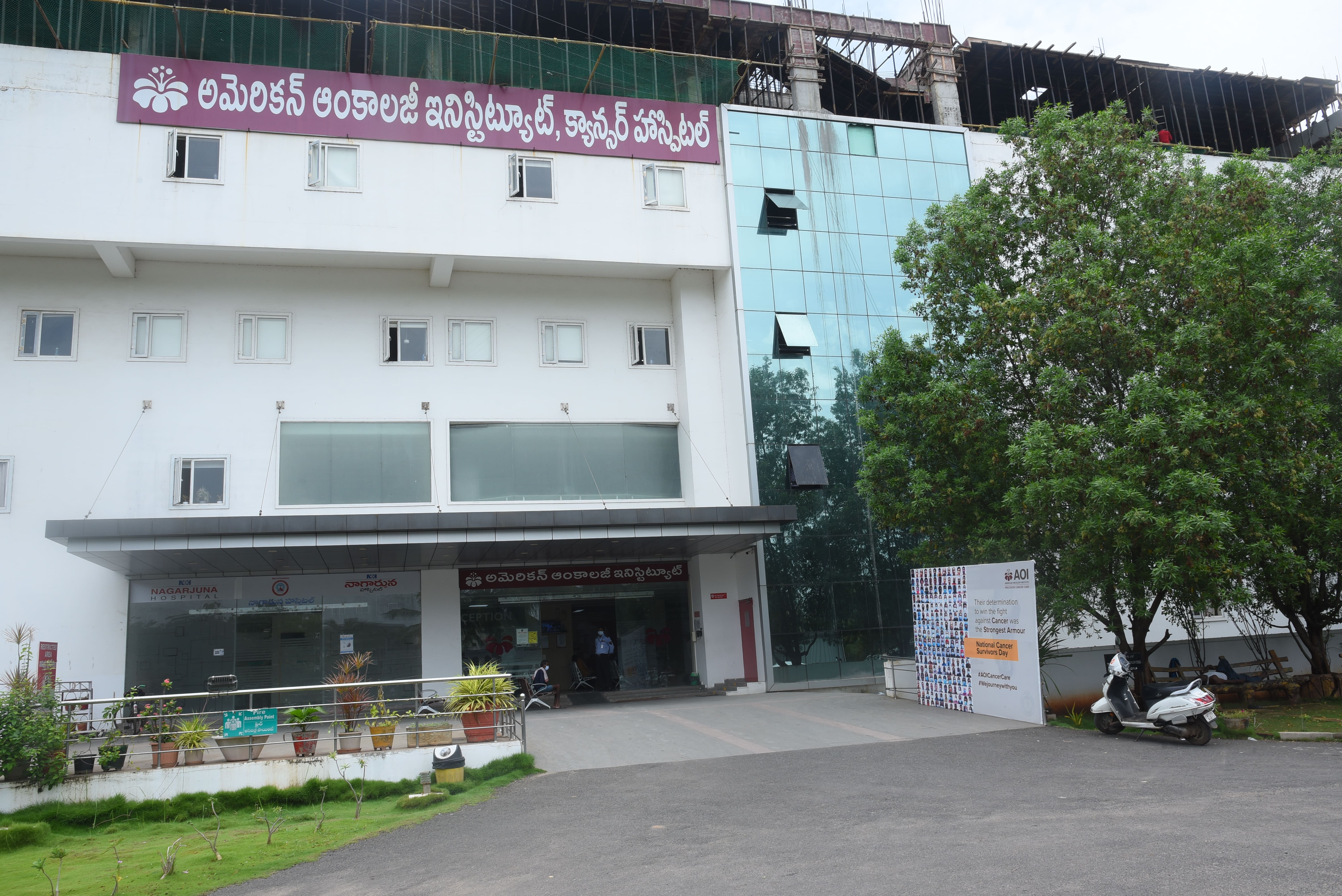Surgical oncology is a specialized field of medicine that focuses on the surgical treatment of cancer. Surgical oncologists are trained in surgical techniques to diagnose, stage, and remove cancerous tumors from the body.
Our surgical oncology team at American Oncology Institute Vijayawada, includes several highly-qualified, experienced surgeons devoted to producing optimal outcomes for patients and advancing surgical management techniques for cancer. Many of our surgeons have trained at or practiced at top international cancer hospitals and have obtained Board Certifications in the United States. Members of our surgical team hold expertise in the sub-specialty areas covering the entire body, including many minimally-invasive and limb-sparing techniques not widely available in India. We adopt the latest technology and guidelines developed by international organizations to provide the best outcomes for our patients.

AOI stands at the forefront of treatment excellence offering precision cancer care for all types of cancers for all age groups and genders.

An expert team of cancer care specialists
With you in your journey to better health
Personalized care & treatment
Seamless access to our services
Surgical oncology is a specialized field of medicine that focuses on the surgical treatment of cancer. Surgical oncologists are trained in surgical techniques to diagnose, stage, and remove cancerous tumors from the body.
Surgical oncologists treat a wide range of cancers, including breast cancer, lung cancer, colorectal cancer, pancreatic cancer, liver cancer, stomach cancer, ovarian cancer, prostate cancer, and many others.
The role of a surgical oncologist is to assess the extent of the cancer, plan and perform surgical procedures to remove tumors, and ensure optimal cancer management. They work closely with other members of the multidisciplinary cancer care team, such as medical oncologists and radiation oncologists, to provide comprehensive cancer treatment.
Surgical oncologists perform various types of cancer surgeries, including tumor removal (resection), lymph node dissection, reconstructive surgery, minimally invasive surgery, laparoscopic surgery, robotic surgery, and palliative surgeries to relieve symptoms and improve quality of life.
The decision for surgery is based on several factors, such as the type and stage of cancer, tumor location, patient's overall health, and the likelihood of achieving complete tumor removal. The surgical oncologist will assess these factors and consult with the patient and the multidisciplinary team to determine the best course of treatment.
As with any surgery, there are risks and potential complications associated with cancer surgery. These can include infection, bleeding, damage to nearby organs or structures, blood clots, anesthesia-related complications, and the potential for the need of additional surgeries or treatments.
The recovery time after cancer surgery varies depending on the type and extent of surgery performed, as well as individual factors. Some surgeries may require a hospital stay of a few days, while others may require a longer recovery period at home. Your surgical oncologist will provide specific guidelines and monitor your progress during the recovery process.
In some cases, alternative treatments such as chemotherapy, radiation therapy, targeted therapy, immunotherapy, or a combination of these may be recommended as primary or adjuvant (additional) treatments instead of or alongside surgery. The appropriate treatment approach will depend on the specific cancer type and stage, and it is determined on a case-by-case basis.
Your surgical oncologist will provide you with specific instructions to prepare for surgery. This may include guidelines regarding eating and drinking before surgery, medications to avoid, necessary tests or imaging, and preoperative counseling. It is important to follow these instructions closely to ensure the best possible outcome.
Before surgery, you can expect to undergo preoperative evaluations, meet with your surgical oncologist and anesthesiologist, and provide necessary medical history. During surgery, you will be under anesthesia, and the surgical oncologist will perform the planned procedure. After surgery, you will be monitored in the recovery area and then transferred to a hospital room or discharged home, depending on the specific surgery and your condition.
The need for additional treatments, such as chemotherapy or radiation therapy, after surgery depends on various factors, including the type and stage of cancer, the success of the surgery, and the potential for cancer recurrence. Your surgical oncologist will work closely with other specialists to determine if additional treatments are necessary and develop a comprehensive treatment plan.
The time it takes to receive the pathology report after surgery can vary depending on the complexity of the case and the workload of the pathology department. It typically takes a few days to a week for the report to be prepared and communicated to your surgical oncologist, who will then discuss the results with you.
The long-term outcomes for patients who undergo cancer surgery vary depending on factors such as the type and stage of cancer, the success of the surgery, and individual patient characteristics. Some patients achieve complete remission and have excellent long-term survival rates, while others may require additional treatments or experience cancer recurrence. Your surgical oncologist can provide information specific to your case.
After surgery, regular follow-up visits with your surgical oncologist will be scheduled to monitor your recovery, evaluate the effectiveness of the treatment, and address any concerns or new symptoms. Follow-up care may include physical examinations, imaging tests, blood work, and discussions about further treatment or supportive care.
Adopting a healthy lifestyle can be beneficial for recovery and reducing the risk of cancer recurrence. Recommendations may include maintaining a balanced diet, regular exercise, avoiding tobacco and excessive alcohol consumption, managing stress, and adhering to any prescribed medications or therapies. Your surgical oncologist and the care team can provide specific guidance based on your individual needs.
Surgical oncology is a rapidly evolving field, and there have been advancements in surgical techniques, including minimally invasive and robotic-assisted surgeries, improved imaging technologies for precise tumor localization, and personalized approaches based on genetic and molecular profiling. Your surgical oncologist can provide information on the latest advancements relevant to your case.
